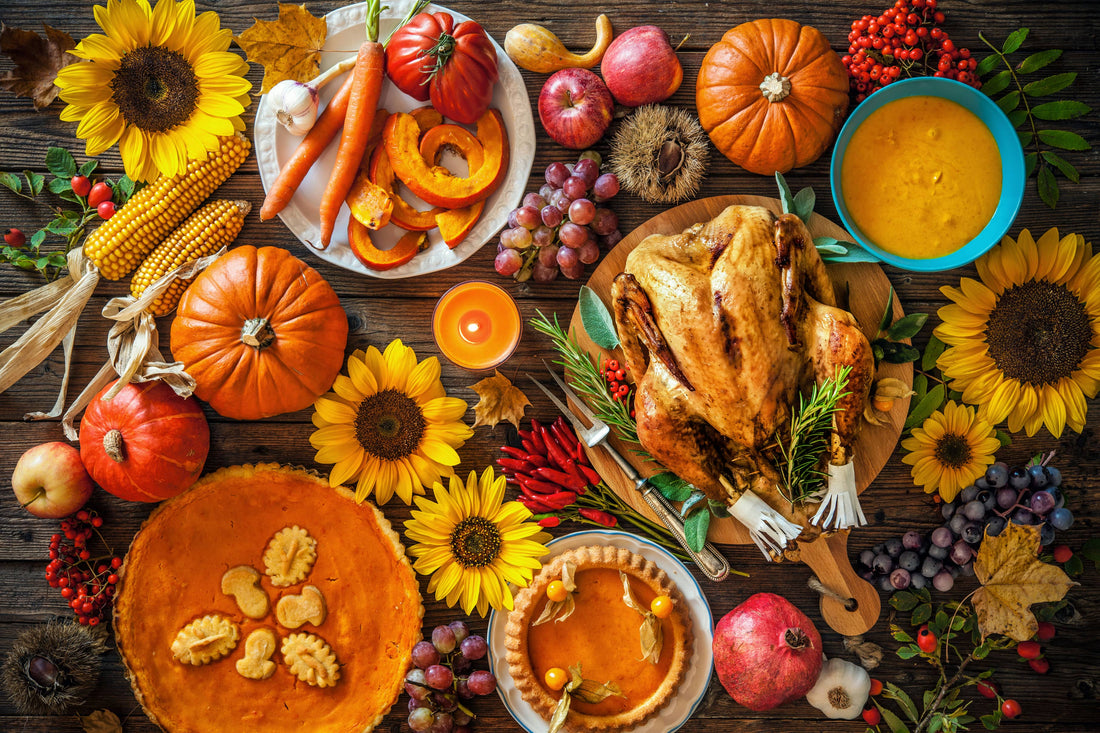
Why Does Thanksgiving Dinner Make You Sleepy? (Hint: It’s Not What You Think!)
Share
Let’s face it – turkey has gotten a pretty bad rep when it comes to making people involuntarily sleepy.
The whole “turkey makes you tired” myth has been circulated regularly, especially during the Thanksgiving season. Heck, the supposed sleep-inducing properties of turkey were even immortalized in a Seinfeld episode! But the thing is, science disagrees with the popular theory that eating turkey equals having to take an involuntary nap.
By this point, you’re probably thinking, “But what about the tryptophan!” And you’d be right. Mostly.
After all, we’ve all heard the scientific-sounding theory about turkey making us want to snooze because it contains the amino acid tryptophan – a building block for the hormones serotonin and melatonin, which help us get to sleep. There have even been studies that show the pill form of tryptophan helps to ease insomnia.
The thing is, turkey contains right around the same amount of tryptophan found in other meats – about 350 milligrams per 4 ounce serving. So why don’t we find ourselves getting sleepy after we chow down on some fried chicken? Or a juicy burger?
And there’s also the fact that the amount of tryptophan found in turkey and the other types of meat that we eat on a regular basis is significantly lower than what is needed to induce sleep. Most tryptophan sleep supplements range from 500 to 1,000 mg per pill.
Maybe turkey’s blamed for making us sleepy after Thanksgiving dinner because we eat so much more of it than the typical 4 oz. serving? That sounds like a valid point – but it’s an incorrect one.
Just because holiday meals usually mean consuming much more tryptophan than we normally would, doesn’t mean that turkey is the culprit for needing a nap after an evening of giving thanks with your family.
Health professionals and scientists have discovered that L-tryptophan in large doses only makes you sleepy if it’s eaten on an empty stomach, with no other proteins or types of amino acids being present.
And since that plate piled with turkey also contains a sizable amount of protein, any effect the tryptophan might have on your level of sleepiness is blocked by the protein that’s in it.
Now that turkey is off the hook, what do we blame for the post-Thanksgiving dinner slump?
Doctors have found that it is most likely the considerable amount of food that we’re eating in general, and the overdose of carbohydrates specifically. Not to mention the booze.
Now, this is where things can get a bit tricky, since tryptophan does play a role in why carbs make us sleepy. How? Well, the short and simple version is that eating carbohydrates makes more tryptophan available to the brain. The long, scientific version, courtesy of the good folks at the Scientific American, goes like this:
"Gobbling a slice of sweet pumpkin pie, for instance, causes beta cells in the pancreas to secrete insulin, a hormone that allows the uptake of glucose and most amino acids into the tissues. But insulin has little effect on tryptophan, a large percentage of which travels the bloodstream bound to the protein albumin and therefore is unavailable to the tissues, the notable exception being the brain. By sopping up other amino acids from the blood, however, insulin reduces the tryptophan’s competition; the transport system is no longer tied up and more tryptophan can cross the blood-brain barrier."
So what does that mean? Carbs lead to insulin. Insulin then helps get rid of glucose and all other amino acids. This leaves tons of tryptophan roaming around alone in the bloodstream, which eventually crosses into your brain and makes you sleepy.
The bottom line? Go forth and stuff yourself silly this Thanksgiving. Just don’t blame the turkey alone when you’re snoozing on the sofa by 5 pm!
